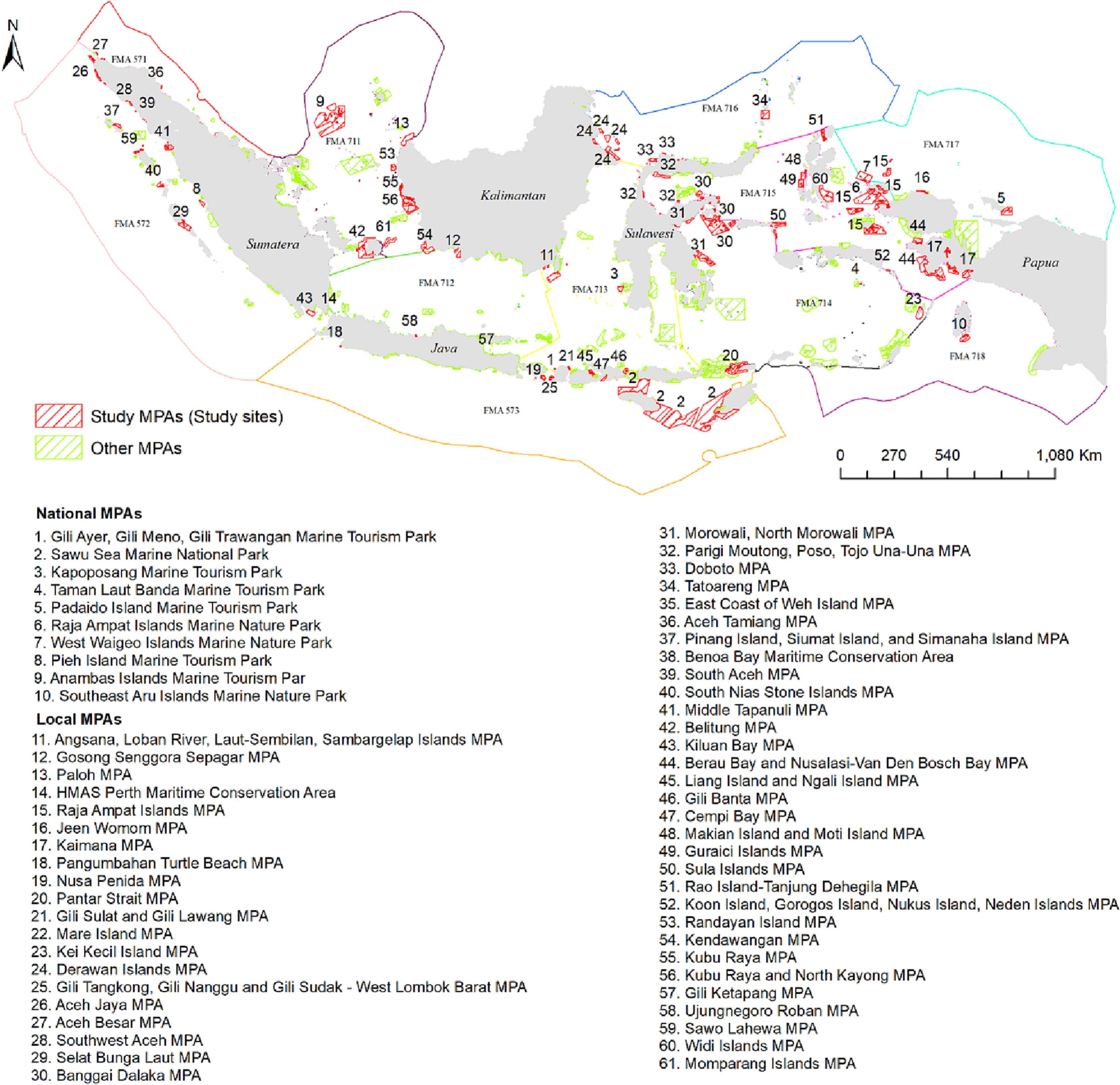Lusita Meilana, Qinhua Fang*, Handoko Adi Susanto, Ririn Widiastutik, Dedy Eka Syaputra, Harrison Odion Ikhumhen, Rusdatus Sholihah, Amehr Hakim*, Suzhen Yang, Zhenghua Liu
Biological Conservation
https://doi.org/10.1016/j.biocon.2023.110033
Published: June 2023
Abstract
According to the Convention on Biological Diversity (CBD) post-2020 global biodiversity framework, marine conservation activities aiming solely at area coverage are insufficient; thus, a persistent effort is required to establish effective marine protected areas (MPAs). Despite the fact that the number of MPAs has expanded dramatically over time, their management effectiveness still needs to improve, particularly in developing nations. Hence, this study was conducted to quantitatively and qualitatively assess the current state of Indonesian MPAs in meeting the Aichi targets. The government's investigative reports served as the foundation for the quantitative research, while a government-led interview-based survey conducted across 61 Indonesian locations served as the basis for the qualitative study. The findings showed that although the present Indonesian MPAs were at the stage of meeting the national target of 10 % coverage, it was anticipated that they would fall short of the new 30 % worldwide target by 2030. Although 61 % and 39 % of the research sites were managed at a minimal and optimal level, respectively, the evaluation of the management effectiveness of the MPAs in Indonesia indicates that none of the sites were sustainably managed. Lack of funding due to a need for infrastructure, facilities, and human resources was the main problem impeding management effectiveness. Based on the study's findings, it is recommended that the nation's biodiversity targets be designed to focus more on the development and oversight of the current MPA management and provide a perceptive policy response concerning the post-2020 global biodiversity framework.
